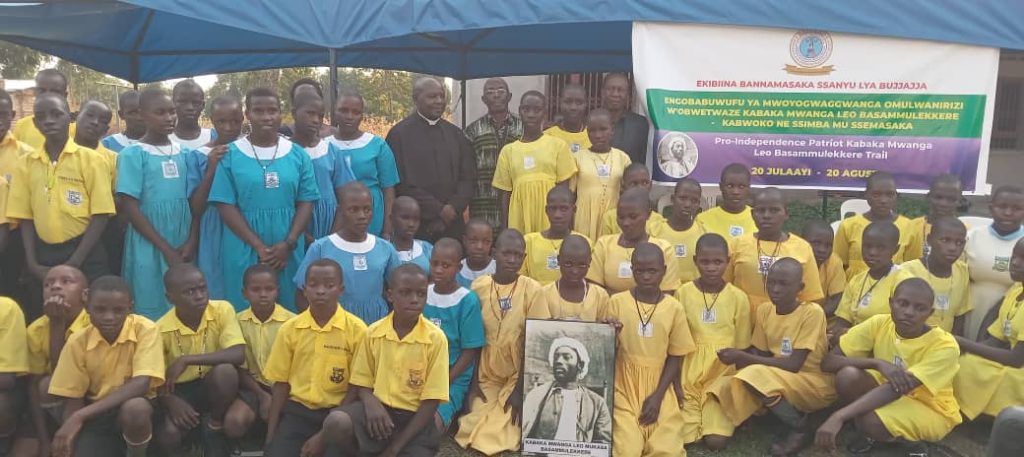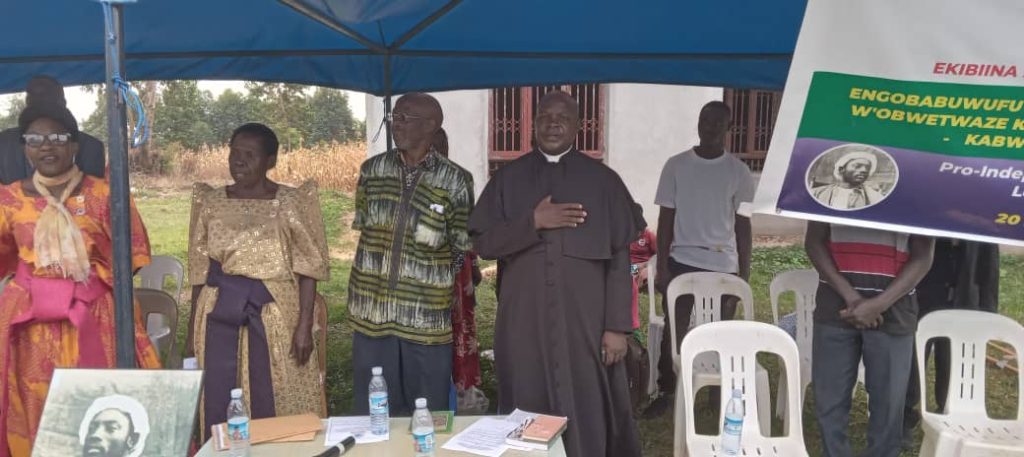
By George Bukenya
Bannamasaka Heritage Enjoyment Society (BANHESO) launched with a view of honoring King Mwanga Leo Mukasa Basammulekkere and promoting the historical sites where he vigorously fought colonialists in the late 1890s.
After the launch of BANHESO, the period of July 6th to August 6th every year has been earmarked as the ‘Okugoba Obuufu Bwa Kabaka Mwanga’ , the period dedicated to remember what Mwanga deed for his Nation.
King Mwanga is portrayed as a very bad leader who allegedly hated the Christian converts during his reign and nothing good regarding his reign has been talked about in the due to his ordering of the execution of converts who were initially serving in his Palace as ‘Bagalagala’ having refused to denounce their religious beliefs.
The Bagalagala were King’s subjects staying in the palace but being trained to become future leaders in the Kingdom.
He became the King of Buganda when he was only 16 years. He was the first leader to fight colonialist and was defeated and exiled with his friend Omukama Kabalega of Bunyoro Kingdom having been united with him to fight these foreigners who imposed colonial rule on both monarchy
The initiators of the BANHESO headed by Ricardo Mulinda have a story to tell about King Mwanga’s deeds and fight for his monarch’s leadership as well as for the independence of the nation.
A renown Professor of History, Prof. Samwiri Lwanga Lunyiigo say that there are some History books but none of them talk about the good deeds of King Mwanga that they only depict him as a very ruthless man who didn’t like religions and converts at all.
Lwanga who have also authored some History books including one on the history of Mwanga, titled Mwanga II, says that King Mwanga wasn’t ruthless as portrayed by some books written by whites.
According to him, Mwanga actually loved religion and this is evidenced in his acts like allocating them land for settlement he also encouraged his chiefs to forfeit party of their land and donate to the religious leaders.
Besides that, the prof. says he had asked to be baptized only to be denied that chance because he had several wives something that was contradicting the Christian religious teachings and norms yet was a requirement in Buganda’s constitution for Kabaka to marry from all tribes aimed at least each clan to have a chance of getting a King.

Prof. Lwanga says that the information he gathered indicates that King Mwanga had reconciled with the missionaries whom he met after being exiled in Tanganyika and he talked to them and apologized for all what happened.
The former Makerere University History lecturer (Lwanga) narrated how Mwanga fought colonialist who defeated him having been betrayed by his Prime Minister Apolo Kaggwa, Stanislaus Mugwanya who was the minister of justice and Zakaliya Kisingiri who served as county chief of Bulemezi and Kyagwe respectively.
The duo is alleged during Mwanga’s war against the colonialist, sidelining with the enemy they would even give intelligence information to those colonialist which helped them to know the steps the King was undertaking.
Prof. Lwanga reasons that if indeed King Mwanga was ruthless as indicated in some books and by some individuals, he would have executed Kaggwa for betraying him but he didn’t, besides that he nominated religious leaders on various administrative posts for example Zakaliya Kisingiri.
He also points out that says that Kings, Ssuuna and Muteesa I were actually very ruthless but are not depicted like Mwanga.
While addressing the masses at the launch of BANHESO at Kabuwoko hill in Masaka District said Ssuuna chased away Arabs. King Mwanga had his royal fighters who include; Gabriel Kintu Mujasi, Luyi Kibanyi and Leo Bisaso all young men but loved their nation.
These were commanders of the 150 troops he had while fighting the colonialist at Kabuwoko hill in Masaka. Father Expedito Kitto the Parish Priest of Kabuwoko parish also agree with Prof. Lwanga admitting that King Mwanga loved religion because he encouraged his chiefs to donate land to the religious leaders to allow the establishment of churches and schools and Hospitals for instance Kabuwoko were Mwanga had staged his troops was donated by his chief Vikitolo Kitukanya and Kitovu which hosts a number of catholic religious institutions was donated by the King’s chief.
“ A bigger chuck of land in Masaka Diocese was donated by the Kingdom therefore as religious leaders we need to acknowledge this at all times and appreciate King Mwanga,’’ Fr. Kitto said.
Although Prof. Lwanga advised BANHESO leaders to agitate for Kabuwoko hill to became a tourist heritage place and even other surrounding area,